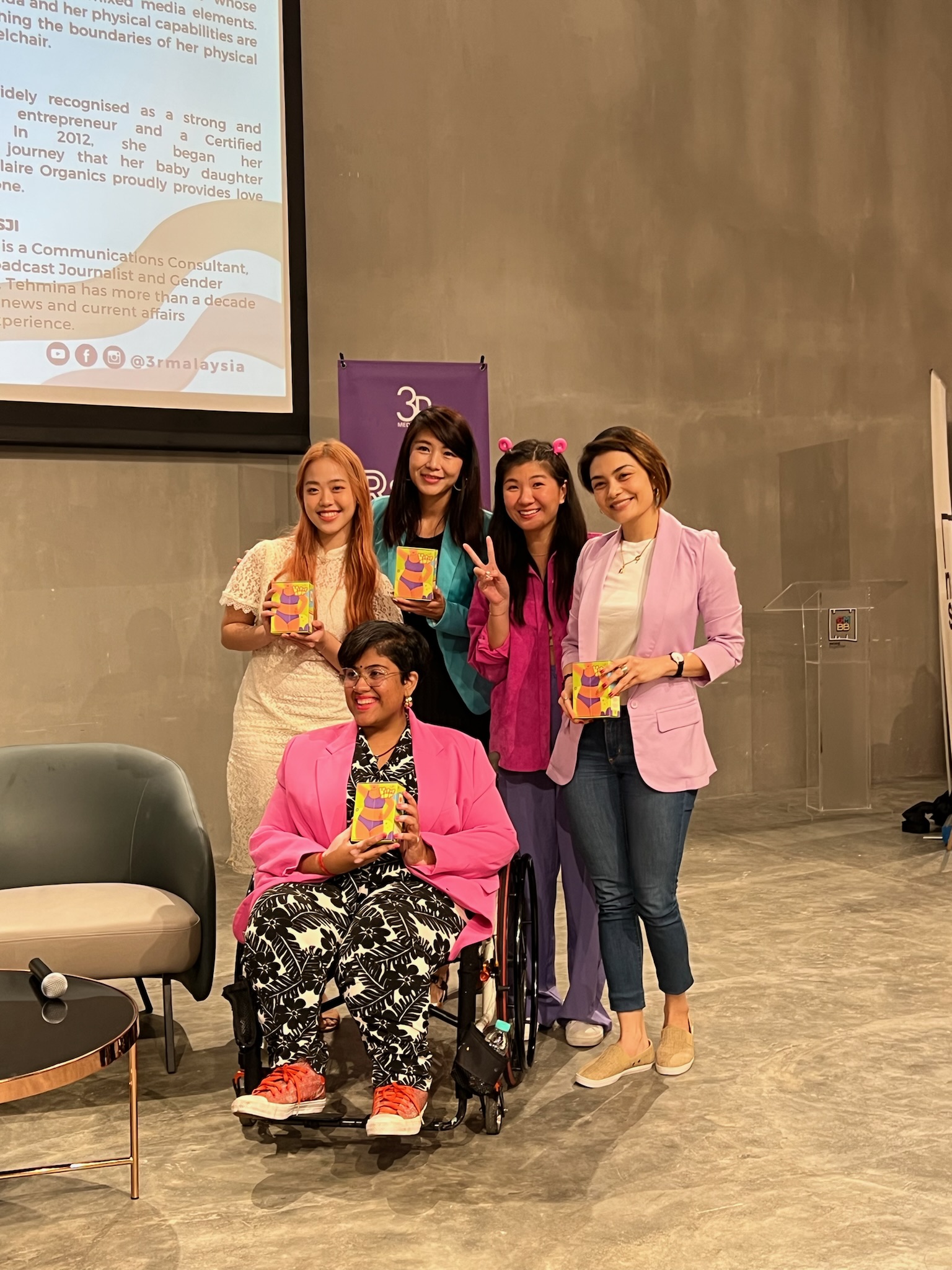Normalising Period Talks—For All Our Sakes
By Valerie Wirinhar
August 2024 FEATURE
MENSTRUATION CONTINUES TO be an uncomfortable topic of discussion today, especially in relatively conservative parts of the world. Akin to a terribly misunderstood lady, the truth about menstruation has long been enshrouded by unfounded conjectures.
In fact, Pliny the Elder, a Roman naturalist and philosopher, first described menstruation as a catastrophic existence in Natural History, immortalised in one of the earliest and most comprehensive encyclopaedias published in AD 77-79:
“Contact with [menstrual blood] turns new wine sour, crops touched by it become barren, grafts die, seed in gardens are dried up, the fruit of trees fall off, the edge of steel and the gleam of ivory are dulled, hives of bees die, even bronze and iron are at once seized by rust, and a horrible smell fills the air; to taste it drives dogs mad and infects their bites with an incurable poison.”[1]
Thankfully, times have changed; but what remains insufficient is the understanding of what menstruation actually is. Hushed perceptions communicated to young girls through secrecy, the act of hiding menstrual pads and the fear of period leaks have conveyed the message that “periods are shameful” or “menstruation blood is dirty”.

Despite advancements in science and the many discoveries that we revel at, groundless claims about menstruation continue to be disseminated. This poses a few questions: Why can’t accurate knowledge concerning menstruation be served on a platter and spoon-fed to our young, as easily as how we teach the ABCs? Why can’t we talk about the topic leisurely over a cup of afternoon tea? Why can’t we familiarise society with the phenomenon and make it an established and well-informed concept?
According to Catherine Lee, founder of ButterCup, a company that produces menstrual cups, there are several vital steps to take to eliminate menstrual prejudice at its roots to create a safe space for our younger generations. “If you start from young, a lot of problems we have now would not exist,” she says.
When interactions with parental or teacher figures exhibit social stigma repeatedly, children will deem them as normal. These early-age socialisations, upon being internalised, are oftentimes hard to alter.
Hence, these mentor figures are crucial in sparking societal change, especially when it comes to what constitutes a stigma. When children are at the “knowing age”, these authoritative figures should start to clarify such false myths by educating the young on women’s reproductive health, and encouraging them to strike a behavioural change.
Situations where parents expect teachers to teach their children about such topics, and vice versa, allow key information to slip through the cracks, leaving these girls to find out what is actually happening to their bodies through friends or social media. Apart from physical sources of information, we easily assimilate beyond-the-classroom knowledge with our compact screens anytime and anywhere. What further contributes to the ease of digestion is the prominence of bite-sized content, exemplified by Instagram reels and TikTok shorts. Their vibrant and attractive visuals enthral its audience in mere seconds, enabling them to remember the communicated information.
This highly-digestible format has proven efficacious with Gen Alphas, who have a comparatively heightened social awareness. For example, at the ButterCup pop-up booth, several teenagers told Catherine that they learned about menstrual cups through TikTok. Evidently, with moderate usage, social media serves as a valuable platform that informs its audience on a multitude of topics and pressing issues. However, we know this is not adequate; there are other types of content out there that might swing viewers in the other direction—we live in a very polarised society, after all.
Therefore, if you have an open communication channel with a tween or teenage girl, let them know that menstruation is a normal part of growing up and it may appear irregular for the first few years. Assure them that there is no need to be scared or ashamed of these developments and that it is important to seek medical help for excessive bleeding, prolonged absence of periods or bleeding between periods. Maintaining a healthy diet rich in iron and folic acid is crucial to improving haemoglobin concentrations, and girls should disregard taboos about restricted food and drinks during their period.
A 2022 study by Kotex among Malaysian girls found that more than 50% of the girls surveyed wanted to miss school during their periods.[2] This suggests menstruation remains a source of shame and discomfort, even though over 86% of girls acknowledged it to be a natural bodily function. The results highlight a need for open conversations about periods, not just at home but in schools. Sexual and reproductive health should be appropriately addressed among students during their primary school years. Healthy discussions among teachers and students, and among students themselves, will remove potential stigma about the subject. Painting blank canvases with accurate menstrual knowledge and period positivity would give birth to a generation that is knowledgeable and open about menstrual difficulties.
Footnotes
Valerie Wirinhar

is currently pursuing a Bachelor of Business and Commerce degree at Monash University Malaysia, majoring in Business Analytics and Marketing with a minor in Fintech. Apart from
focusing on academics, she likes to dabble in art and creative design.



